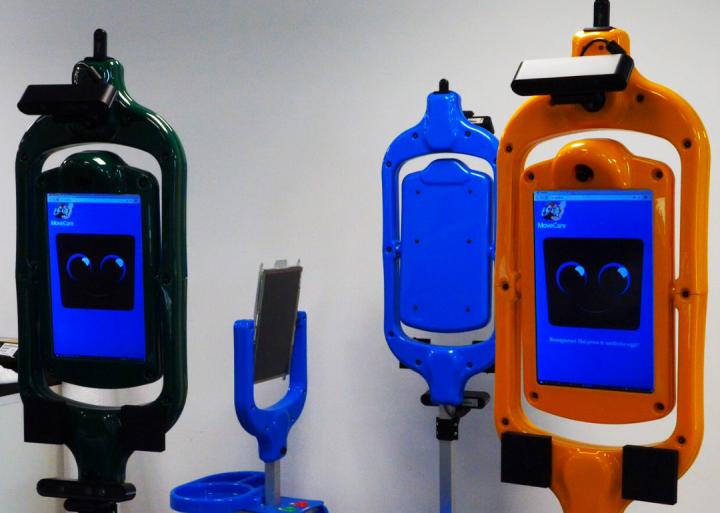
Credit: Università degli Studi di Milano
MoveCare European project has entered its testing phase. MoveCare is part of the Horizon 2020 Programme, and is led by the University of Milan and Computer Science professor Nunzio Alberto Borghese and involves the Laboratory of Applied Intelligent Systems (AIS Lab) of the “Giovanni degli Antoni” Computer Science Department.
The consortium involves 14 bodies, including the Politecnico di Milano’s NearLab laboratory and Fondazione IRCCS Ca’ Granda Policlinico di Milano (Milan Polyclinic).
The project combines the Internet of Things (IoT), Artificial Intelligence [AI] and robotics to improve the life quality of elderly who live alone, promoting their independence and slowing down or monitoring cognitive and physical decay.
A person’s data, habits at home, cognitive abilities and motor functions are collected by IoT and stored in the cloud. This data is analysed by AI, which examines possible psycho-physical decline and returns a series of customised suggestions to the elderly patient such as social activities and physical exercises. It provides clues to search for lost objects at home and people to contact. The AI tells a social robot to search for a lost object, or respond to a help request by, either connecting to a family member who can see what is happening, or emergency room numbers. This is without the need to make house changes or wear devices.
The 10-week test phase will involve 30 elderly people living alone in Milan and Extremadura (Spain). Each user will receive an “IoT” sensor kit, smart objects (such as an anti-stress ball and sensorised insoles), and a tablet. They will have access to an activity centre connected to the television for social and cognitive activities and a digital platform of exercises to be carried out through games and microphones to recognise help requests without errors. Twenty users will receive a robot.
In Milan, the testing phase will be held at the Korian Group’s Heliopolis retirement home in Binasco, which is among the consortium partners. It operates in the assistance and care field, and private homes of five elderly people living in Milan who have been selected by Policlinico di Milano.
Politecnico di Milano is responsible for monitoring this project, which aims at detecting the first signs of physical and cognitive decline in pre-frail elderly. The keywords of this monitoring are “ecology” and “transparency.” It involves using sensors in everyday objects (an anti-stress ball and a pair of insoles) and makes it possible to longitudinally observe potential indicators of decline – weakness, tremor, pace variability and slowness. The goal is to do this without changing the elderly person’s habits and increase the whole system’s usability.
Project coordinator Alberto Borghese said: “Western society is changing, not only because the population is ageing, but also because the family is losing its central role in society. This makes the elderly increasingly more fragile, as they tend to live longer but not always in ideal conditions. ICT offers the possibility to completely change this situation by fulfilling the elderly need for safety, stimulating them to lead an active life and providing remote monitoring of the physical and cognitive condition for any necessary early intervention.”
###
Media Contact
Cristina Perini
[email protected]
022-399-2508




